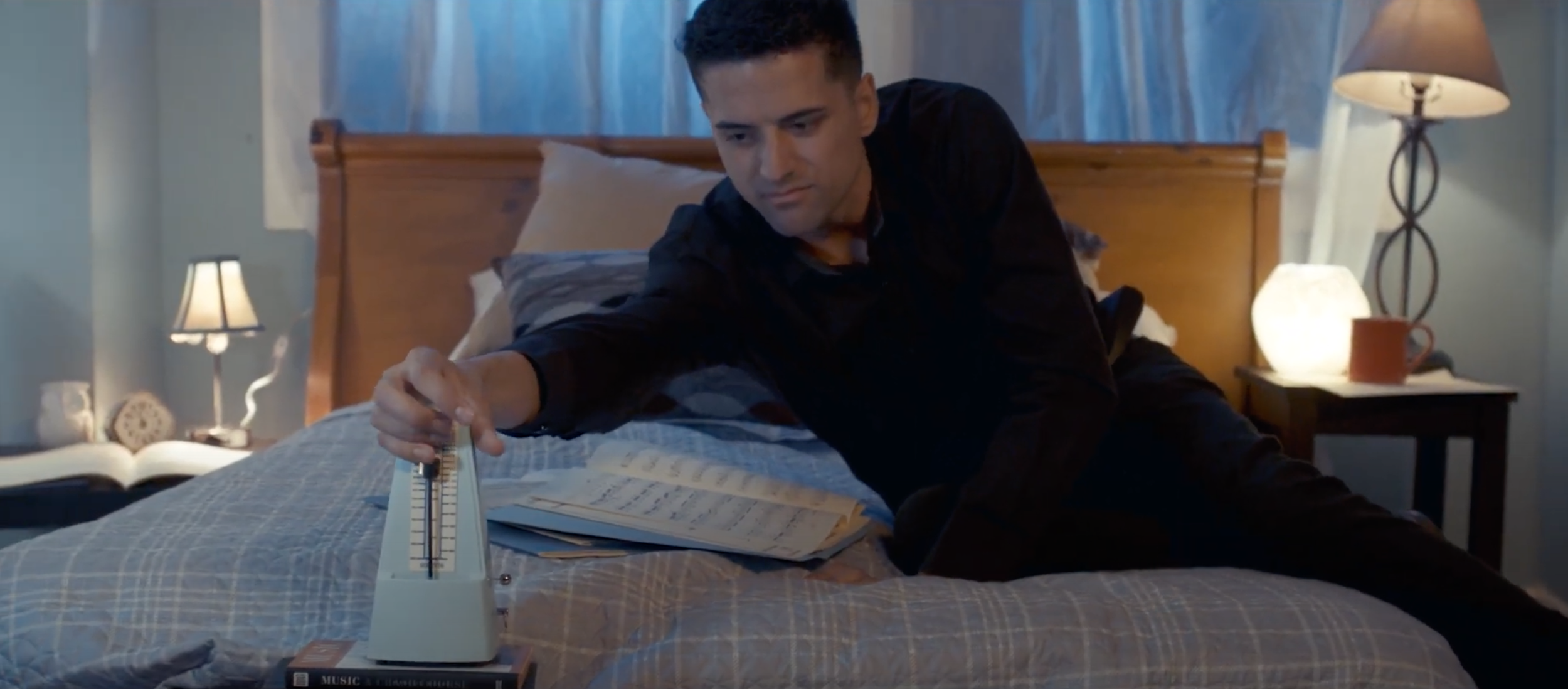Ethan Grover’s Counterpart is a striking and meditative short film that unfolds like a visual symphony. At just over six minutes long, the film manages to explore themes of creative isolation, duality, and artistic rebirth—all without a single line of dialogue. It’s a moody, introspective journey powered by strong visual storytelling, expressive music, and a standout performance by Jacob Huey Correa.
The film opens in a quiet, color-rich room where a withdrawn composer (played by Correa) wakes up to the persistent ticking of a metronome. Frustrated and uninspired, he tosses aside his work—only to be interrupted by a knock at the window. What follows is a dreamlike shift in tone and reality: a transition into a stark, colorless version of the same space where an alternate self seems to inhabit the role of muse or mirror. This “otherworldly counterpart” becomes the source of creative inspiration, and the two realities begin to inform one another in increasingly abstract and poetic ways.
Grover, who also wrote the film, leans heavily into surrealist storytelling—his background in experiential and immersive productions like Stranger Things: The Experience clearly influencing the tactile, atmospheric quality of the piece. There's a precision to his direction that’s felt in every moment, making even the most abstract ideas feel grounded and emotionally resonant.
Cinematographer James Nield brings Grover’s vision to life with dynamic, thoughtful composition and rich color grading. The contrast between the warm, lived-in world of the "real" composer and the sterile, dreamlike double is visually compelling and plays a crucial role in reinforcing the film’s themes of identity and transformation. Editorially, Counterpart is tight and elegant, with cuts that rhythmically match the score and mirror the composer’s internal tempo shifts.
Correa, who brings stage experience and film training to the role, is captivating in this nearly silent performance. His ability to convey frustration, curiosity, and ultimate creative awakening with subtle facial expressions and physical gestures is key to the film's emotional core. It’s a performance that reflects his deep understanding of character work, honed during his time at the La Jolla Playhouse Conservatory and Los Angeles Film School.
The original score—organic to the story—serves as both narrative device and emotional guidepost. As the two versions of the composer interact across dimensions, the music swells with a sense of release and evolution. The sound design is minimal but effective, allowing the ticking of the metronome and the rustling of crumpled sheet music to echo like haunting reminders of time and unrealized potential.
Designed by Jayme Mavar and produced under Untold Story in association with The Los Angeles Film School, Counterpart is both a student film and a breakout calling card for Grover. It has already made waves on the international circuit, with awards and nominations from Cannes Shorts, Sunset Film Festival, and the Seoul International Short Film Festival—a well-earned recognition of its ambition and craftsmanship.
Ultimately, Counterpart is a testament to the power of visual language and non-verbal storytelling. Through carefully constructed imagery and an emotional, metaphor-rich narrative, Grover and his team deliver a poetic meditation on what it means to confront—and be changed by—one’s creative self.
Jessie Hobson





